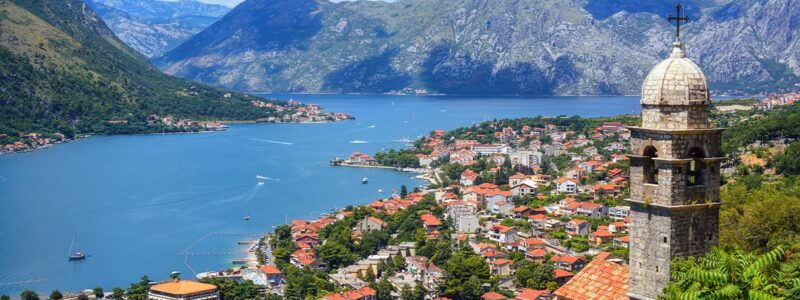
Doing business in the Balkans is attractive to entrepreneurs due to the diversity of tax regimes, relatively low operating costs and growing economic opportunities. This report examines key indicators of doing business in eight countries in the region: North Macedonia, Bulgaria, Serbia, Croatia, Montenegro, Kosovo, Albania, Bosnia and Herzegovina.
1. ease of doing business (Doing Business 2020)
Countries are ranked from best to worst:
North Macedonia – 17th place (leader in the region)
Serbia – 44th place
Montenegro – 50th place
Croatia – 51st place
Kosovo – 57th place
Bulgaria – 61st place
Albania – 82nd place
Bosnia and Herzegovina – 90th place
Conclusion: North Macedonia offers the best business environment in the region, while Bosnia and Albania are at the bottom of the list and need to improve their business climate.
2. Tax burden
Countries are ranked by their corporate tax rate (from lowest to highest):
Montenegro: income tax – 9%, VAT – 21%, dividend tax – 9%.
Bulgaria: income tax – 10%, VAT – 20%, dividend tax – 5%
North Macedonia: income tax – 10%, VAT – 18%, dividend tax – 10%
Kosovo: income tax – 10%, VAT – 18%, dividend tax – 0%
Bosnia and Herzegovina: corporate income tax – 10%, VAT – 17%, dividend tax – 5%.
Croatia: corporate income tax – 10%-18%, VAT – 25%, dividend tax – 10%.
Serbia: income tax – 15%, VAT – 20%, dividend tax – 15%
Albania: income tax – 15%, VAT – 20%, dividend tax – 8%.
Conclusion: Montenegro has the lowest tax burden on profits (9%), and Kosovo has no tax on dividends.
3. Registration of a company
State fee: €50-€150
Notary services: €30-€200
Bank deposit: Not required
Conclusion: The process of company incorporation in the Balkans is relatively inexpensive and fast, with minimal bank deposit requirements.
4. Average salary (€ per month)
Countries are ranked in descending order of average salary:
Croatia: €1,150
Bulgaria: €830
Serbia: €770
Montenegro: €730
Bosnia and Herzegovina: € 650
North Macedonia: €640
Albania: €520
Kosovo: €450
Conclusion: The highest salaries are in Croatia (€1,150) and Bulgaria (€830). Kosovo and Albania have the lowest rates, which reduces staffing costs but can make it difficult to find qualified specialists.
5. Office rent (€/m²/month)
The countries are ranked in descending order of rental costs:
Serbia (Belgrade): €15-€25
Croatia (Zagreb): €14-€24
Bosnia and Herzegovina (Sarajevo): €12-€22
Albania (Tirana): €10-€20
North Macedonia (Skopje): €10-€20
Montenegro (Podgorica): €10-€18
Kosovo (Pristina): €8-€15
Conclusion: The most affordable office rents are in Kosovo, while the highest are in Serbia and Croatia.
6. Utilities (office 85 m², €/month)
Countries are ranked in descending order of utility costs:
Croatia: €160
Serbia: €150
Montenegro: €140
Bosnia and Herzegovina: €130
Bulgaria: €130
North Macedonia: €125
Albania: €120
Kosovo: €110
Conclusion: Kosovo remains the most affordable region in terms of utility costs, with Croatia leading the way in terms of the highest costs.
7. Internet and communication (€/month)
The countries are ranked in descending order of internet costs:
Croatia: €35
Serbia: €30
Albania: €25
Bulgaria: €25
Kosovo: €20
Conclusion: The cheapest internet is in Kosovo (€20) and Bulgaria (€25). In Croatia, the cost of the Internet is higher than the regional average.
Final analysis:
To minimize taxes: Montenegro, Bulgaria, Kosovo.
For developed infrastructure and highly qualified employees: Croatia, Serbia.
To start with minimal costs: Kosovo, Albania.
For stability and access to the EU: Croatia and Bulgaria.
The Balkan region offers a variety of business opportunities. The choice of country depends on the specific priorities of the company: whether it is the tax burden, the cost of labor, or operating costs.